Information/Write-up
Wireless: Canadian Hard Rock with Global Roots
Wireless emerged in the mid-1970s as a unique international blend of Australian rock grit and Canadian melodic sensibility. The band’s genesis traces back to Sydney, where bassist Allan Marshall, guitarist Steve McMurray, and drummer Glenn Beatson had previously played together in the pop-rock group Autumn. After a stint in England, the trio toured Canada in 1975 and, struck by the country’s burgeoning music scene, chose to settle in Toronto.
To solidify their lineup, they added two Canadians: singer Michael Lalonde (formerly of Mornington Drive) and guitarist Michael Crawford, forming the first version of Wireless. Their dual guitar interplay, sharp songwriting, and polished stage presence quickly earned them attention. The band signed with Atlantic Records and recorded their debut LP, Wireless (1976), with renowned producer Jack Richardson (The Guess Who, Bob Seger) at Toronto’s Soundstage Studios. The album featured slick rockers like “Spend the Night With Me” and “Lovin’ in Return,” garnering respectable airplay and setting the stage for national touring.
However, challenges followed. By 1977, Atlantic had dropped the band, and drummer Beatson returned to Australia. After an extensive search, Marty Morin (formerly of Goddo) was brought in on drums, and Marshall assumed lead vocal duties following Lalonde’s departure. The new quartet signed to Anthem Records—home to Rush and Max Webster—and recorded their second album, Positively Human, Relatively Sane (1978), produced by ex-Max Webster bassist Mike Tilka. Songs like “I Know You Know,” “No Way Out,” and “What You Make It” showed a heavier, more progressive edge and earned critical praise.
Anthem aimed to elevate Wireless to the next level and brought in Rush bassist Geddy Lee to produce the band’s third and final album, No Static (1980), recorded at Le Studio in Morin Heights, Quebec. Despite the pedigree and buzz surrounding the lead single “Pay to Ride,” commercial success remained elusive. The album would become a cult favorite, but without chart momentum, the group quietly disbanded shortly after Morin returned to a reformed Goddo.
Although Wireless was active for only a few years, their concise discography reflects the intersection of international experience and Canadian rock ambition. In 2012, Anthem reissued Positively Human, Relatively Sane and No Static on a single CD, introducing a new generation to the band’s sophisticated, guitar-driven sound.
-Robert Williston
Allan Marshall: lead vocals, bass
Michael Crawford: guitars, vocals
Steve McMurray: guitars
Marty Morin: drums, percussion, vocals (lead vocals on 'The rut' and 'What You Make It')
Produced by Michael Tiika
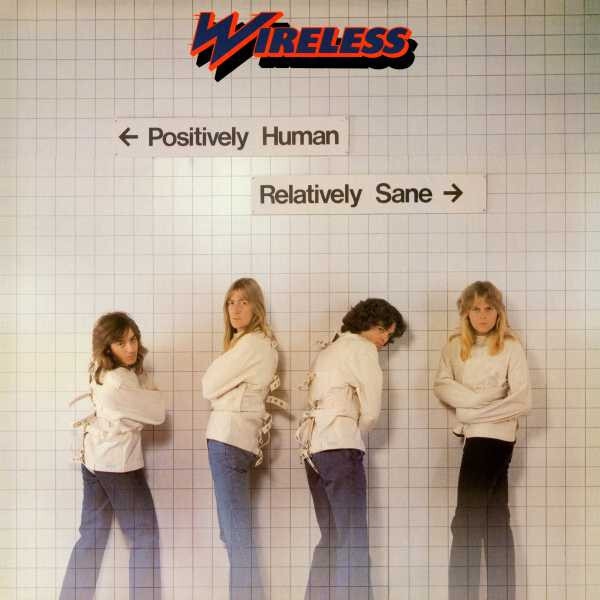
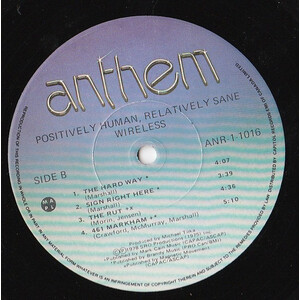
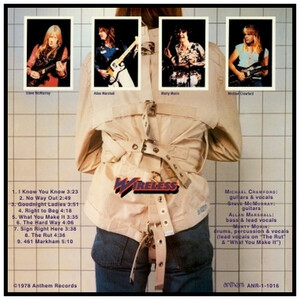
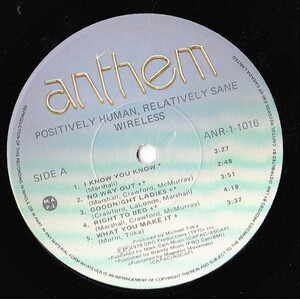
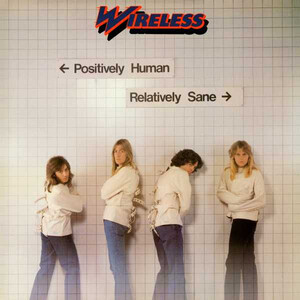
No Comments